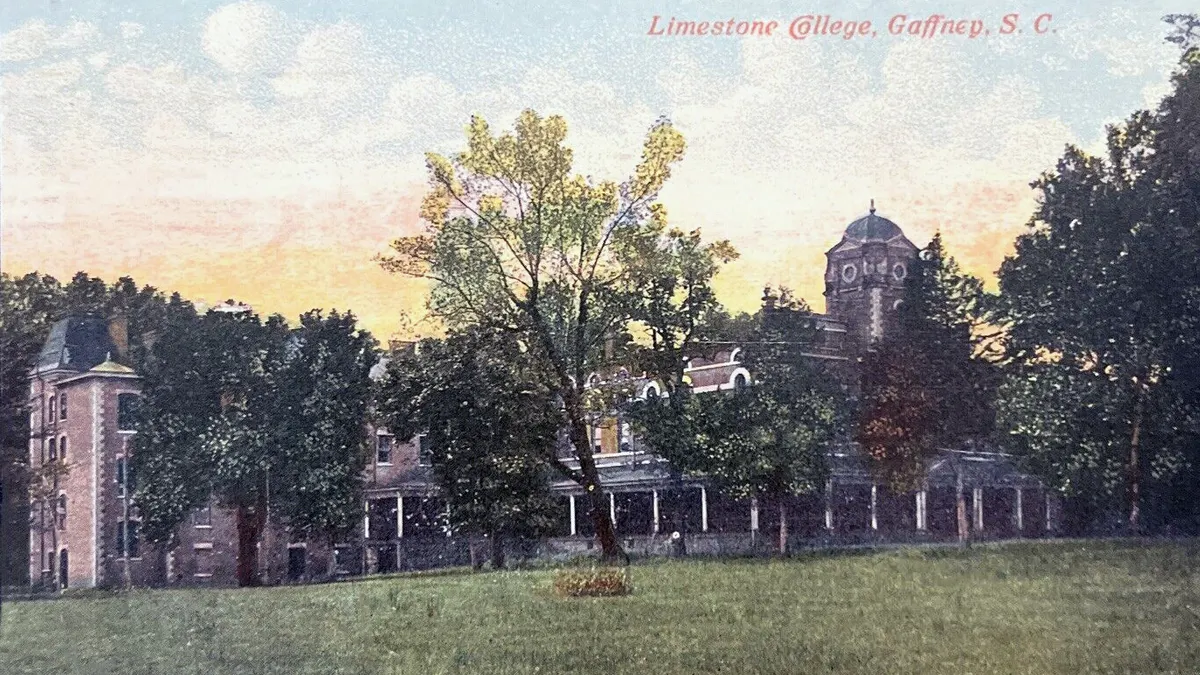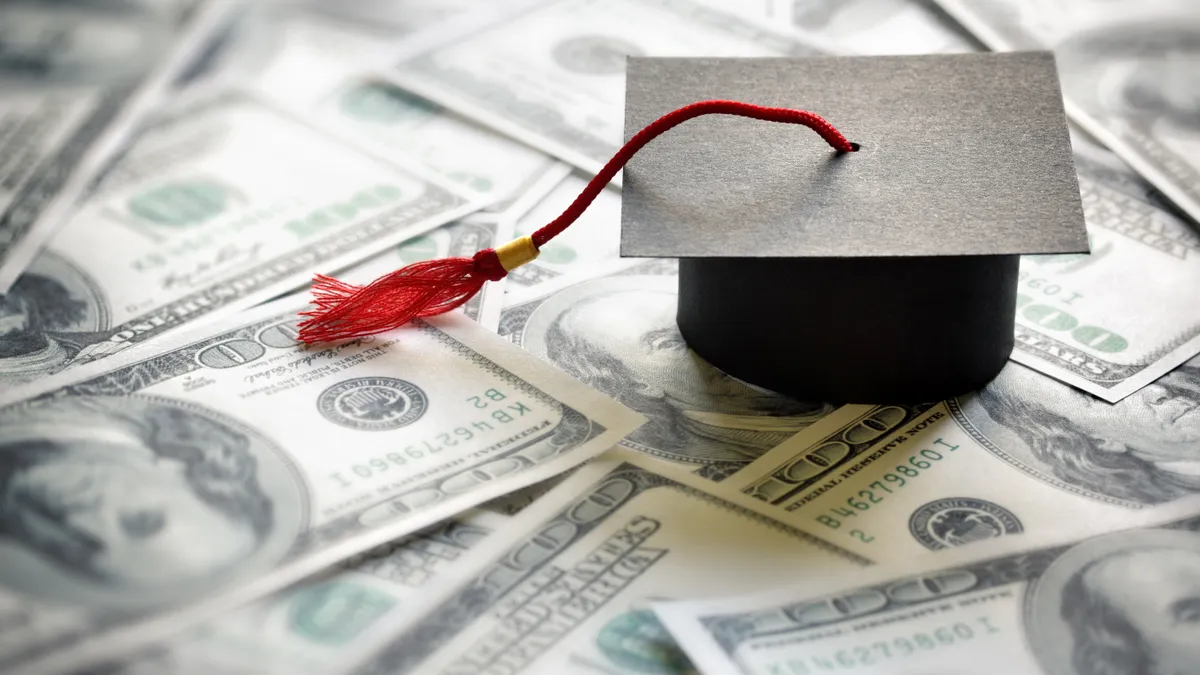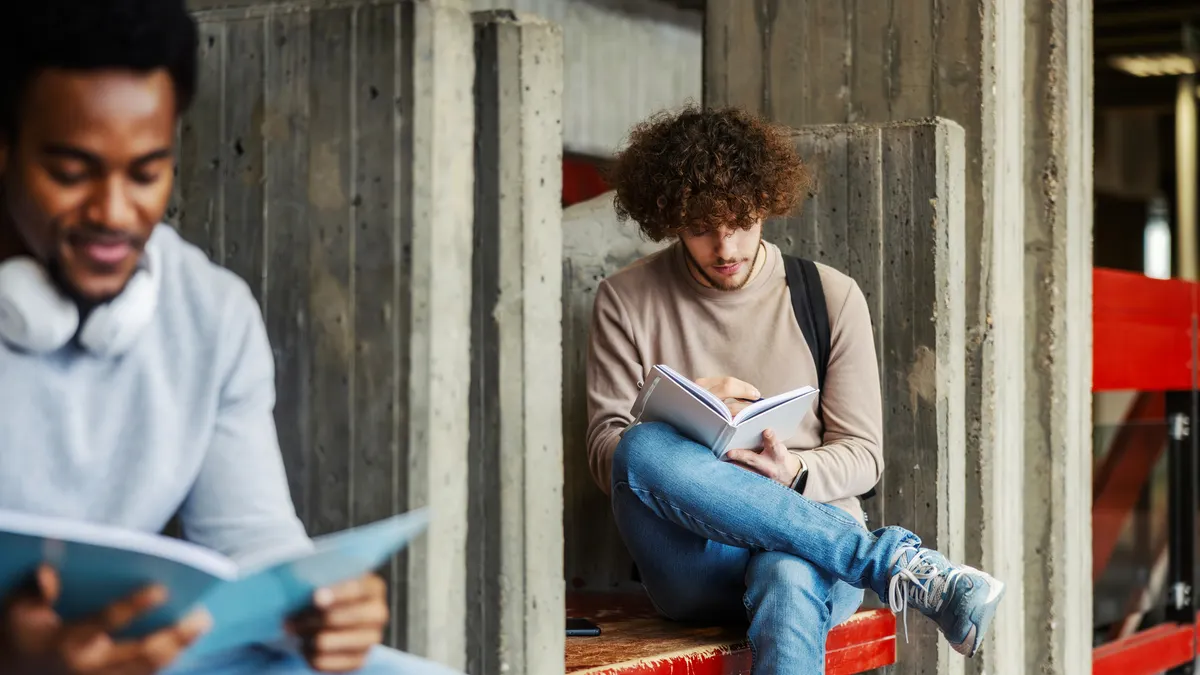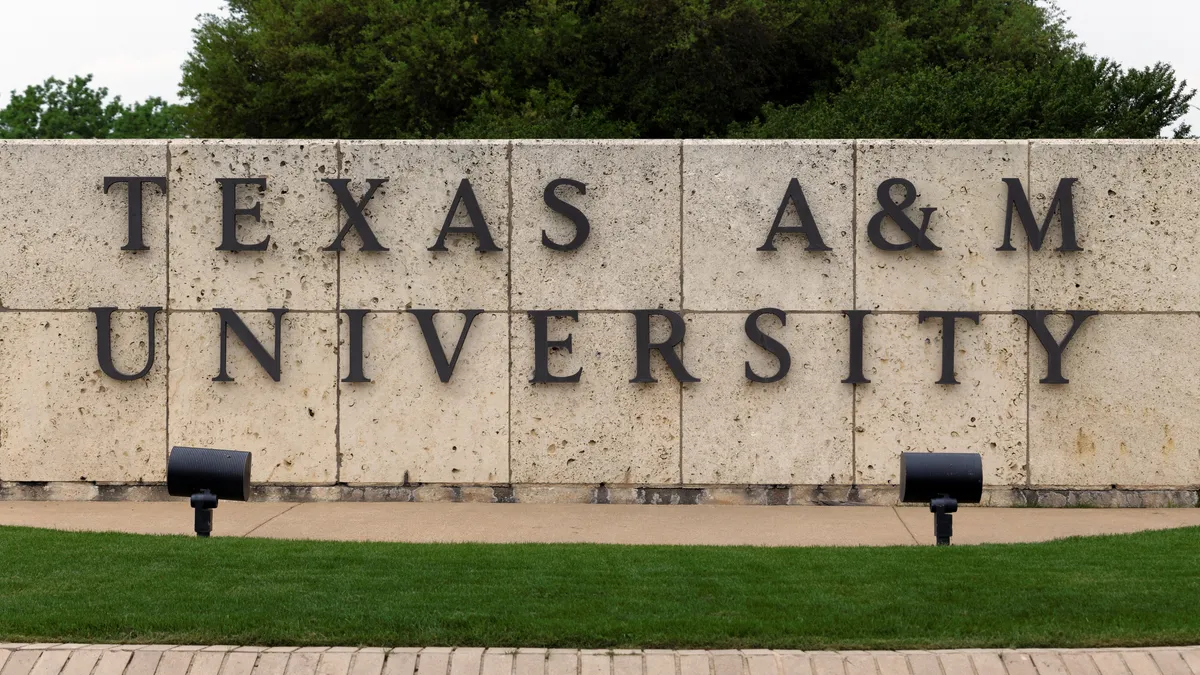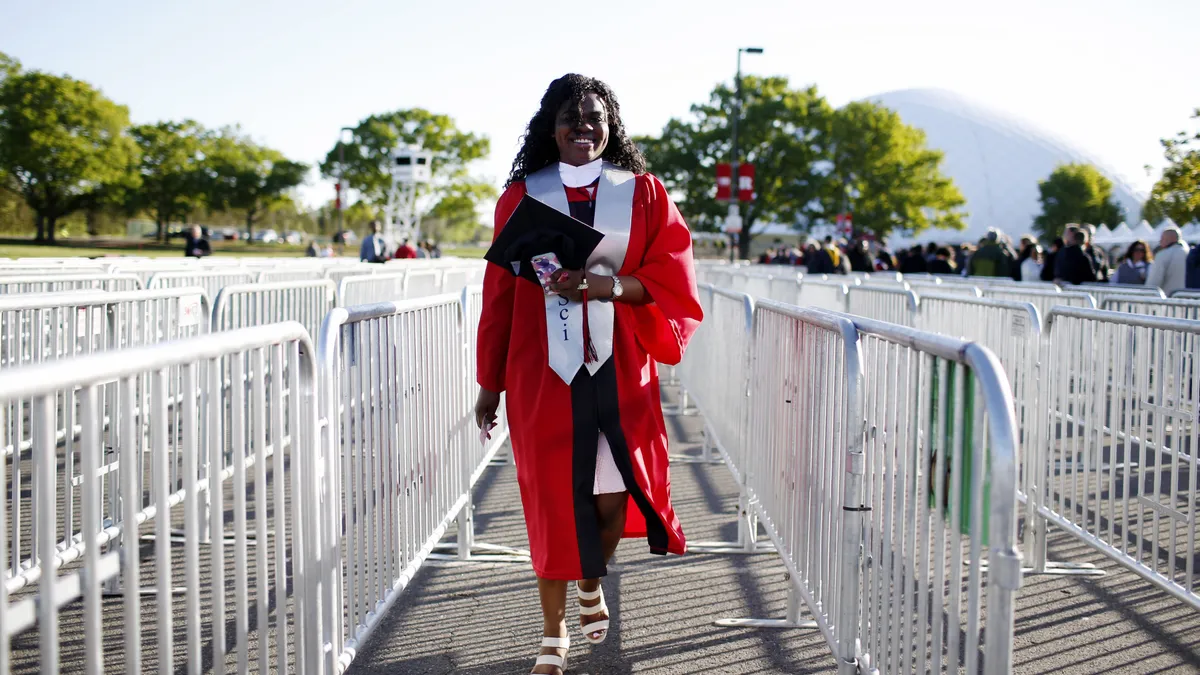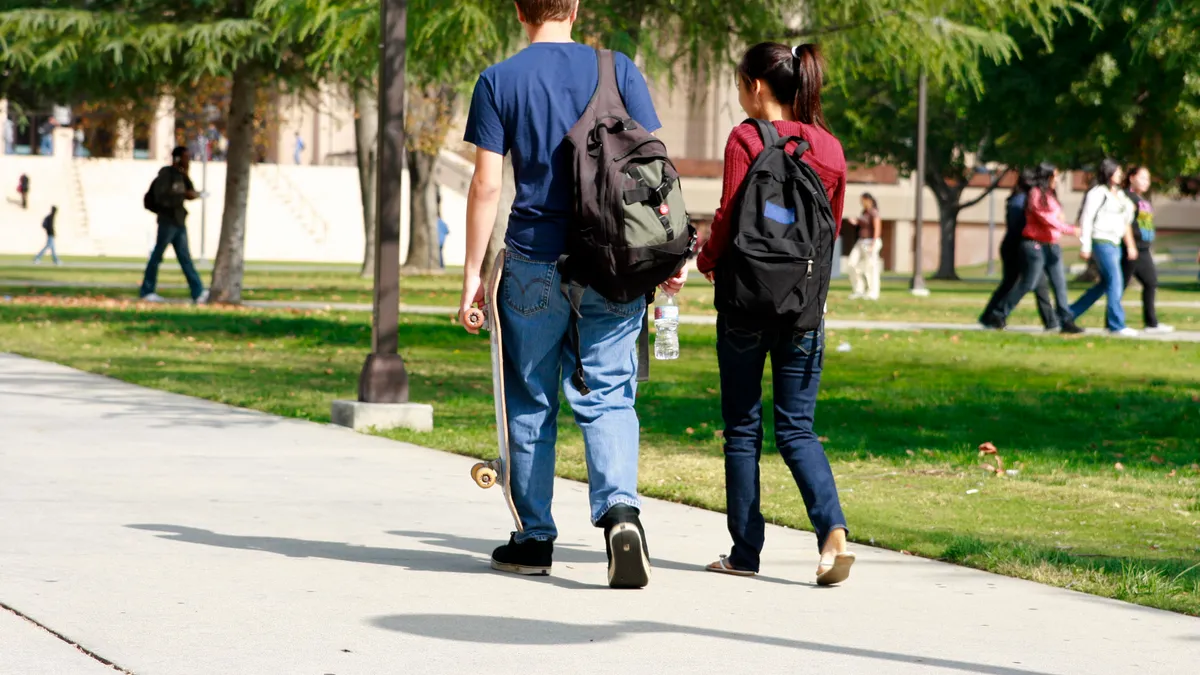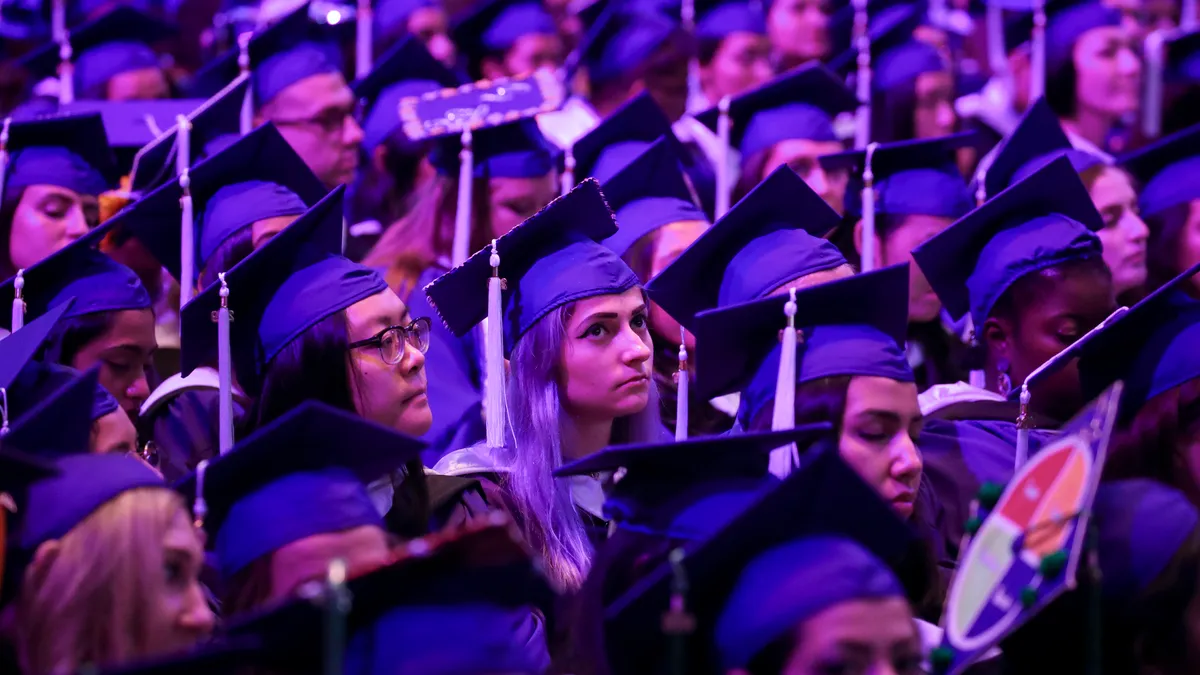Editor's Note: Mark Lombardi is the president of Maryville University of St. Louis.
Thanks to the digital transformation that defines our age, most of us walk around with a library in our pocket. Today's access to vast information is unprecedented and transformative.
Yet, in higher education, the approach to disseminating information remains fundamentally unchanged after 2,500 years.
The professorial lecture still reigns supreme at many institutions. Students still sit in rows of seats and desks, facing the "front" and the instructor. Even technology still primarily extends the one-way dissemination of content from faculty to student.
As colleges and universities, it's time to recognize that we are no longer keepers of knowledge. We must serve instead as agile facilitators of knowledge, evolving and adapting to the new reality of how information flows through the world.
Unlocking the innate potential of all students — not just those who thrive in the traditional classroom setting — requires recentering higher education around students and their individual learning journeys. Rather than a one-way transfer of information, we must build models characterized by experiences and pathways that students can individualize.
While such cultural change is never a simple undertaking, it's vital to attracting, teaching and supporting today's students — as well as blasting open the doors of access to those closed off from higher education because of diverse learning styles.
New roles and models in student-centered learning
Access to information does not guarantee an education. Professors with expertise and real-world experience remain vital to the personalized-learning process. They can guide a student's journey from limited knowledge and awareness to understanding, application, discernment and critical problem-solving.
If this doesn't sound like a departure in theory, it is in practice. More than ever, professors must create learning partnerships with their students and with other professionals. In a student-centered model, faculty work with partners such as life coaches and learning designers to craft course experiences that support personalized instruction, tailored to a student's learning style.
Students are responsible for engaging in these experiences, building their learning strengths and using them to absorb information and ideas. They must take the content and instruction provided and move through their own journey of discovery — experimenting, innovating, trying, failing, learning, adapting and mastering their areas of study. Faculty are caretakers and facilitators along this journey, but students have ownership of the process and can use it to its best advantage.
Moving to this type of personalized-learning model requires support at the institutional level to create new learning spaces that are flexible, mobile and integrated. We need to break free of the artificial restraints of the classroom — especially the lecture hall — and enhance connectivity so access to knowledge can and does happen anywhere.
These new learning spaces and places must help students break out of isolation and connect with fellow students, faculty and a broader world of experiences through group orientation and collaborative problem-solving. Never has this ability to connect and learn in a variety of spaces been more important, as the number of traditional and adult students participating in online programs continues to rise.
Colleges and universities can take a variety of approaches to reorient toward student-centered learning. At Maryville University, we've built our model around engaging students, faculty and staff in a continuous and sustainable process of active learning focused on improving student outcomes.
Active Learning Ecosystem
Maryville launched the Active Learning Ecosystem (ALE) in 2014 in partnership with Apple. The ALE is grounded in the assumption that all students learn and process information differently, and that we can help them personalize learning using the most relevant technology. It is built around three interlocking components: learning design, the digital world and life coaching.
Using learning diagnostics and theory, the ALE builds intricate profiles on all undergraduate students, showing how and why they learn the way they do. Faculty members use these profiles — in partnership with learning designers — to create curriculum and learning content that connects with students one-on-one. The primary delivery system for this instruction is the iPad, which offers diverse resources and learning approaches.
Our Digital World initiative provides faculty and students with the iPads, loaded with more than 150 educational apps. They provide convenient access to course materials, customizable learning resources and collaborative tools, anywhere a student may be. This technology also has served as a vital tool in redesigning and reimagining pedagogy more broadly across the university.
"[W]e are no longer keepers of knowledge. We must serve instead as agile facilitators of knowledge, evolving and adapting to the new reality of how information flows through the world."

Mark Lombardi
President, Maryville University
A small group of visionary faculty and learning designers — our "pied pipers" — have led a paradigm shift around digital learning, developing and implementing an approach focused on personalized instruction and problem-solving. Digital World classes support collaboration among students and between students and faculty to solve the types of real-world challenges they will face after graduation.
Maryville also provides layers of support that extend beyond the learning experience. Each student is assigned a life coach who acts as a resource, academic adviser and mentor. These life coaches, equipped with an extraordinary depth and breadth of data, have the resources and campus-wide relationships needed to help students navigate their individual journeys. They meet numerous times over the course of each semester to develop and help accomplish personal, academic and professional development goals.
With these three components as the anchor, Maryville continually evolves and grows the ALE, keeping the needs and preferences of our students at the center of everything we do. It provides the solid foundation from which we help students navigate their individual learning journeys and improve their outcomes — now and in the future.


